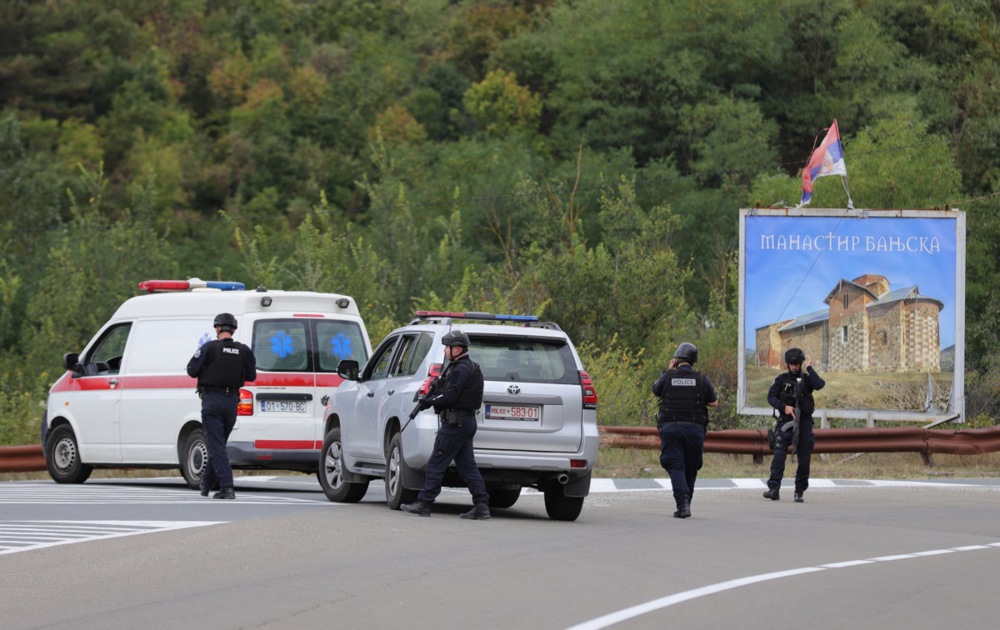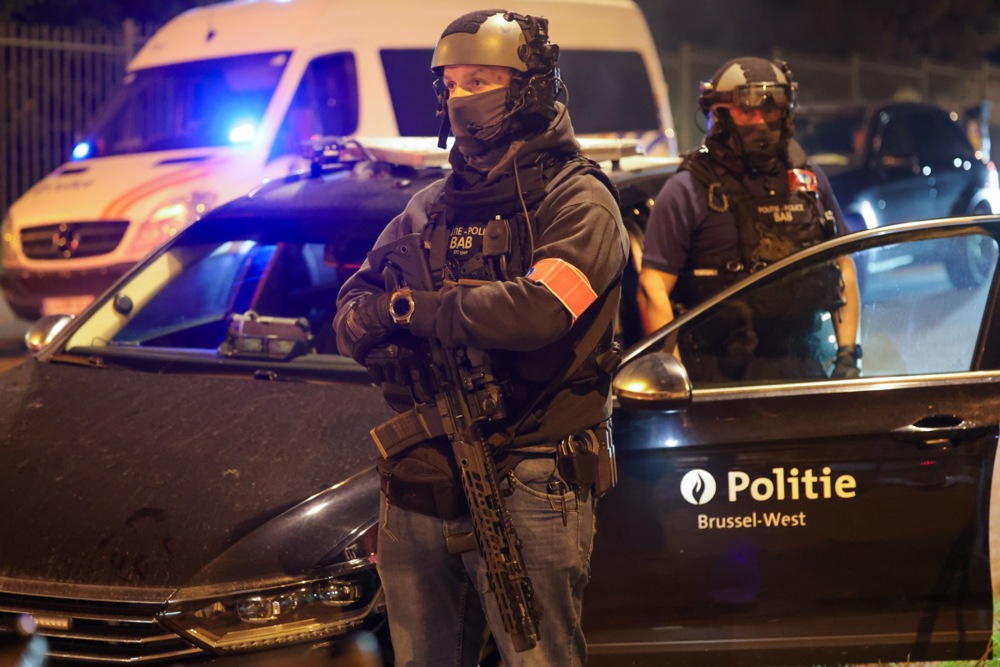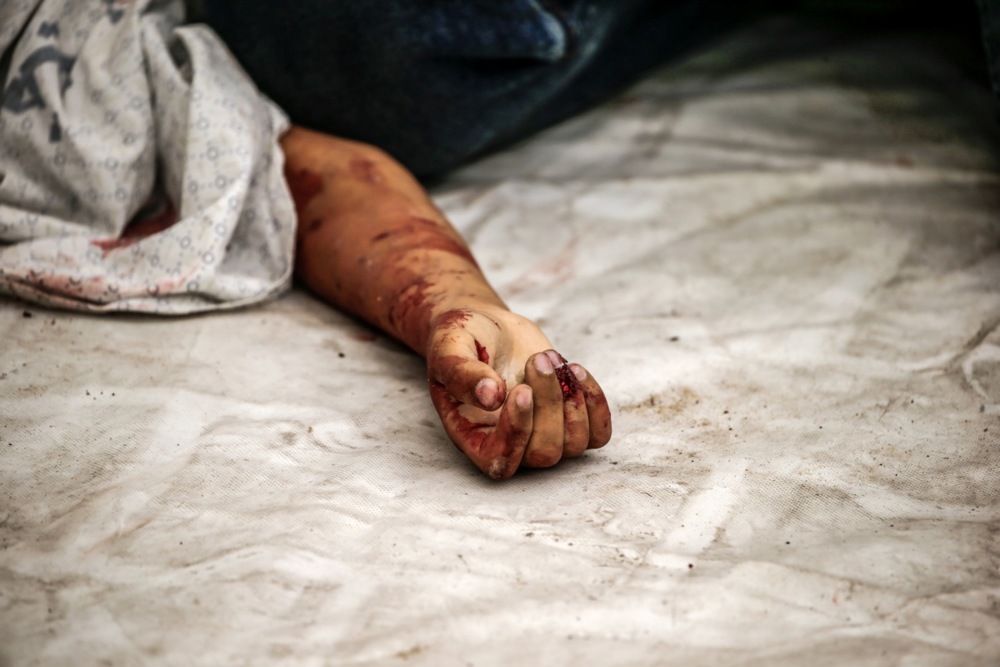In the wake of the most recent terrorist attack in Brussels carried out by gunman Abdeslam Lassoued, a dismal image of the European capital’s security situation is emerging.
There appears to have been a string of alarm bells relating to Lassoud’s jihadist sympathies and his criminal violations.
According to Italian daily Il Giornale, his journey started in Tunisia, where he received a custodial sentence of more than one year for assault and battery. When the Arab Spring began in 2011 after the Jasmine revolution in Tunisia, Lassoued was able to escape prison in the ensuing confusion.
He went to the Tunisian port of Sfax and took a boat to the Italian island of Lampedusa, a route many migrants still use today to reach Europe. He is suspected of having worked as a human trafficker, organising trips from Africa to Europe.
Italian officials reportedly had their eye on him as he was seen as a radical and part of the Ansar al-Sharia group of Tunisian jihadists.
In 2012, Lassoued turned up in Sweden, where a court in Göteborg sentenced him to two years and two months in jail for serious drug offences, together with two others, after he was caught with cocaine. The country also ordered him to leave and forbade him to return for the next 10 years.
He was deported to Italy in 2014 after his time in prison, according to the Dublin Regulation. That regulation aims to “determine rapidly the Member State responsible [for an asylum claim]” and provide for the transfer of an asylum-seeker to that Member State.
In early 2016 he requested international protection but that was declined. Italian security services still regarded him as dangerous and radicalised and investigated him, but were unable to pin anything on him.
In June 2016, he was sent to the identification and deportation centre in Caltanissetta, Sicily, but he appealed to the courts, which led to his status as an asylum-seeker being re-instated.
That gave him the opportunity to leave the centre and travel to Belgium as he had obtained a new residence permit, although his actual whereabouts for the next three years is unclear.
Italian media insist Italy’s police officials informed the rest of Europe regarding Lassoued’s background. They said he was radicalised and wanted to join Daesh, or ISIS, to fight as a jihadist.
Il Giornale even claims he had plans to acquire weapons to use against Christians and Jews. It also suggests there were connections between Lassoued and another Belgian-based terrorist Salah Abdeslam, who was involved in the 2016 Paris and Brussels attacks.
Lassoued headed for Belgium and requested asylum there in 2019. A year later, that was denied. He then disappeared again. In 2021 he was removed from the Belgian national registry of residents.
His identity was listed in the country’s police database due to his unauthorised stay, alongside four other notifications.
Some of these are linked to radical activities but none were deemed serious enough by the Belgian police and security agencies to warrant his inclusion on their terror-threat lists.
On October 16, 2023, the day he murdered two Swedish football fans in his Brussel’s terror attack, a discussion about him had reportedly been planned by Belgian security services.
Days before his attack in the Belgian capital, he posted online about the Al Aqsa mosque, referring to the war in Israel.
Despite that war, the controversy about Quran burnings in Sweden and the recent murder of a French teacher by a jihadist, the Belgian Government assumed there were no indications Lassoued was planning an attack.
Bernard Clerfayt, the mayor of the Brussels municipality Schaerbeek where Lassoued was finally apprehended by police after the shooting, said his office was never informed about his presence, despite his profile.
As he had no official residence, the government was unable to deport him.
A man identifying as a supporter of the Islamic State murdered two men and wounded another on Monday. The police shot the man dead on Tuesday morning. https://t.co/h1SHO4aGAe
— Brussels Signal (@brusselssignal) October 17, 2023
This has touched a nerve in Belgian politics. Right-wing parties have battled against those who refuse an order to quit the country. Left-wing parties have opposed any measures against such people, deeming them harsh or racist. A proposed law allowing police enter the home of illegal migrants was rejected by parliament.
Vincent Van Quickenborne, the current minister of justice in Belgium, said nothing could be done with the info from Italy regarding Lassoued.
It is estimated there are perhaps upwards of 150,000 illegal immigrants in Belgium. In 2023 alone, more than 25,000 people were ordered to leave the country. Only 14 per cent complied. Some are able to work and send their children to school.
Security forces had spotted Lassoued straight after his murderous attack.
They saw him near his residence, where his wife had just kicked him out, seemingly because of what he had done. With a suitcase in hand – and still wearing his fluorescent vest – he was seen at a park but ran off when he noticed the the officers.
They requested authorisation to take action but their seniors denied it, leading to a manhunt lasting until the next day. He reportedly even had time to go to a mosque after his attack before he was shot dead in a bar by officers as he was trying to reach for his gun.
Despite the many failings of the Belgian migration and security services, no minister seems inclined to resign, despite the opposition demands. There have been promises of an improved return policy regarding migrants, and stricter border control.
The President of the European Commission, Ursula von der Leyen, has pledged to help by making new agreements with countries of departure, similar to those with Turkey and Tunisia (which the Tunisians have since rejected). She also pointed to the new EU Migration Pact, with its powers to extradite people who pose security risks.
European plans to curb the mass influx of migrants coming from Tunisia have suffered a major setback as Tunisian President Kais Saied rejected financial support from the European Union. https://t.co/yiNKqJmVPt
— Brussels Signal (@brusselssignal) October 3, 2023





